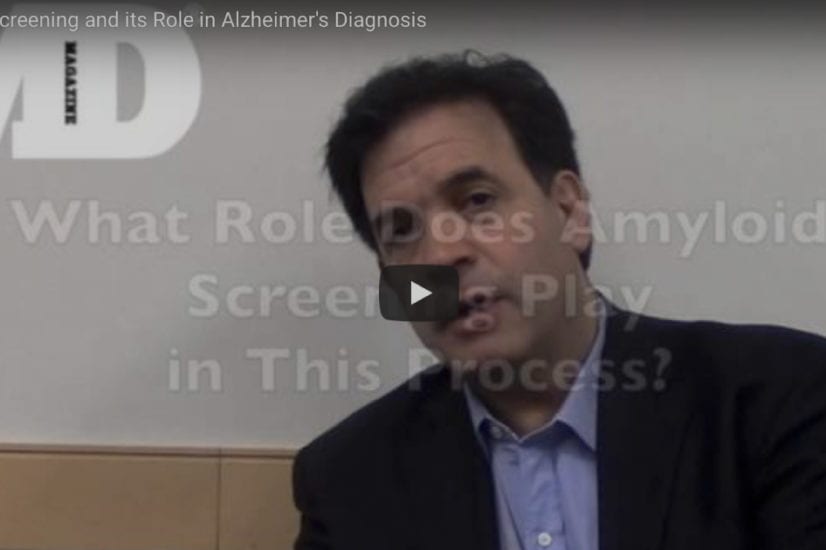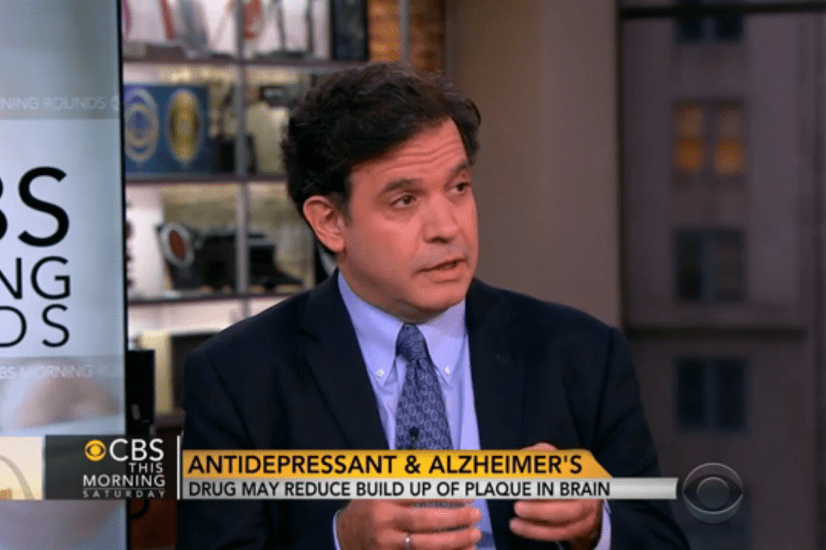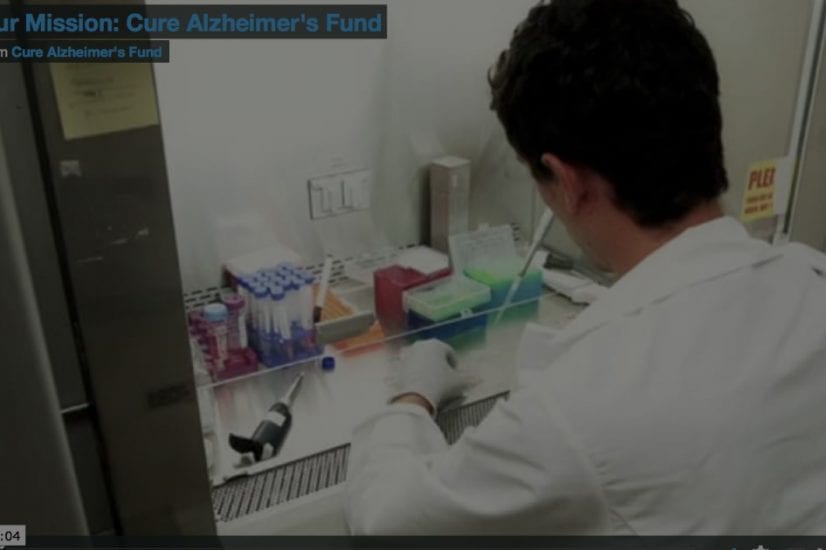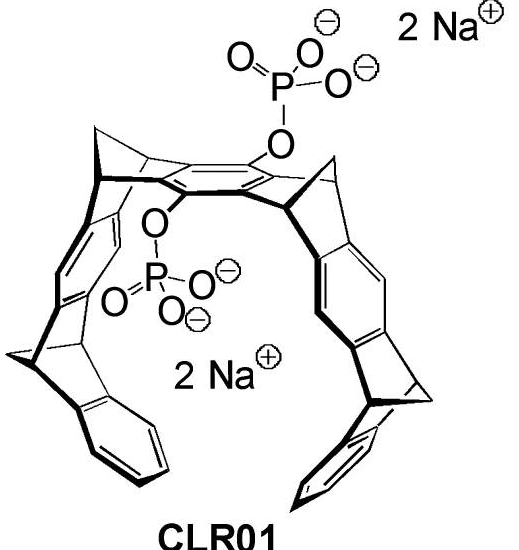October 9 — Eli Lilly announced encouraging results yesterday involving their experimental drug Solanezumab. Solanezumab is an antibody aimed at lowering beta-amyloid levels in the brain. In trials lasting 18 months, patients with mild Alzheimer’s symptoms taking Solanezumab showed significantly less cognitive decline — 34% less — compared with patients taking the placebo.
In a presentation at the American Neurology Association meeting in Boston, Dr. Rachelle Doody (Baylor College of Medicine) presented an independent analysis of the Lilly data performed by the Alzheimer’s Disease Clinical Centers funded by the NIH. She emphasized that, while statistically significant, the Solanezumab effect on cognition in AD patients is very small. After 81 weeks, the difference in the ADAS-Cog14 (cognitive testing) score between treated and untreated patients averaged was only 1.41 points. Moreover, scores overall worsened by about 8 points during that time. Generally a point difference of 3-4 (as was obtained in Aricept trials) is needed to assure a clinically meaningful result. So, more trials will likely be necessary over the coming years to determine if and whether Solanezumab will be clinically useful for the treatment of AD.
There are also other reasons for caution. First, while there were significant cognitive results, the drug did not produce a statistically significant improvement in daily functioning — and may therefore not qualify for FDA approval. Second, it needs to be emphasized that these positive results were seen only in patients with mild symptoms — meaning that Solanezumab will not help patients who are already beyond the early stages of the disease.
Nonetheless, this is a significant step forward and marks a new era in the fight against Alzheimer’s: the first therapy showing that lowering brain beta-amyloid levels in the brain brings cognitive benefit, slowing the Alzheimer’s disease process in safe manner.
Thus, not only is this the first drug to show a demonstrable slowing of the disease (as opposed to the mere masking of the symptoms by the current generation of drugs). It also seems to validate the longstanding strategy to clear beta-amyloid plaques from the brain. Cure Alzheimer’s Fund supports a number of projects aimed at beta-amyloid clearance.
The results are also consistent with Cure Alzheimer’s researcher’s findings that drug therapies, in order to be effective, will have to be directed toward patients as early as possible in order to be effective.
For more, see below:
Bloomberg: http://bloom.bg/R05DY8
USA Today: http://usat.ly/TlV07i
Associated Press/NYTimes: http://nyti.ms/SOjmkj







